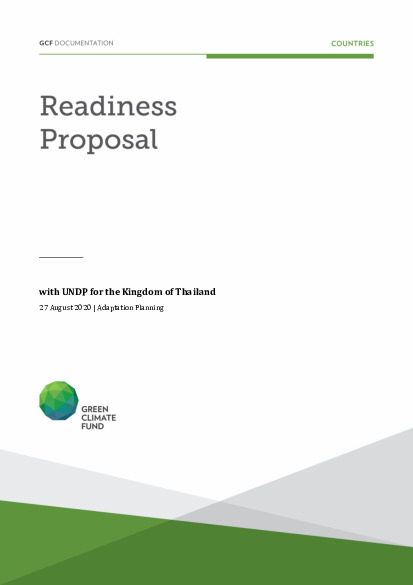Increasing resilience to climate change impacts in marine and coastal areas along the Gulf of Thailand

Increasing resilience to climate change impacts in marine and coastal areas along the Gulf of Thailand
This project will be an important contribution to the implementation of Thailand’s national adaptation plan (finalised in 2018), prepared by Office of Natural Resources and Environmental Policy and Planning (ONEP), and the Cabinet approved Climate Change Master Plan, which provides an overarching planning framework for addressing climate change adaptation.
This project focuses on advancing climate change adaptation planning in relation to marine and coastal areas in the Gulf of Thailand (“the Gulf”). Anticipated extreme events, sea-level rise, climate induced erosion, drought, and flooding are expected to affect local tourism, agriculture, fisheries, aquaculture, and natural resources as well as create additional stress on land and water resource management.
The project is complementary to other initiatives supporting the NAP implementation in Thailand (see table 4). Thailand’s NAP identified six key sectors/ thematic areas, namely: (i) water management; (ii) agriculture and food security; (iii) tourism; (iv) public health; (v) natural resource management; and (vi) human settlement and security. This project will focus on addressing gaps of current support programs. The project will work towards improving climate-responsive ‘natural resource management’ (thematic NAP area v) through the integrative approach of enhancing adaptation planning and budgeting in key marine and coastal economic sectors, e.g. targeting agriculture and fisheries (thematic NAP area ii) and tourism (thematic NAP area iii). It will be implemented in close collaboration with the Department of Marine and Coastal Resources, under Ministry of Natural Resources and Environment (MoNRE). The overall timeline of Thailand’s NAP implementation allows this project to utilise best-practices and information from the other interventions, and to meaningfully expand the knowledge-base and regulatory framework, particularly for the sub-national level. Also, in perspective to revise and update Thailand’s NAP.